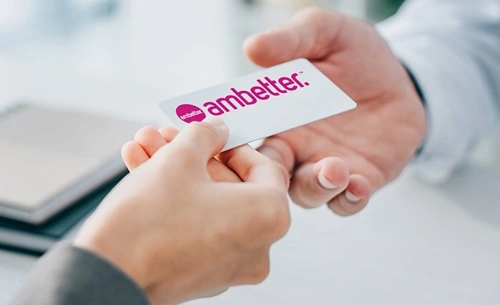The Other Side of Debt Freedom
Becoming debt free is often painted as the ultimate financial goal. After all, who wouldn’t want to live without monthly payments, high interest rates, and the constant stress that comes with owing money? It is a goal that many people work toward for years, whether it is through personal budgeting, business debt relief programs, or strict financial discipline. But while debt freedom offers many obvious benefits, it is worth recognizing that it can also bring along some unexpected challenges.

Just like any major life change, reaching debt freedom can create a new set of problems you might not expect. Understanding these potential issues ahead of time can help you navigate the transition more smoothly and make the most of your newfound financial freedom.
The Loss of Structure and Motivation
One surprising problem people encounter after paying off debt is a loss of structure. When you have debt, your payments are automatic, your budget has clear priorities, and you always know where a chunk of your money is going. Once those payments disappear, some people struggle to maintain the same level of discipline.
Without the urgency of looming debt, it is easy to become relaxed about your finances. You might start spending a little more here and there, only to realize you have drifted away from your financial goals. The motivation that once drove you to be frugal and focused may fade, making it easier to fall into new spending habits that do not align with your long term financial plans.
The Temptation to Take on New Debt
Once you are debt free, you might feel confident enough to start borrowing again. After all, you managed to pay off debt before, so why not finance a new car, take out a personal loan, or open a new credit card for rewards? While some forms of debt can be useful if managed responsibly, falling back into old habits can quickly undo all the progress you made.
It is important to stay mindful of your borrowing habits even after achieving debt freedom. Remember how hard you worked to become debt free and be cautious about taking on new obligations that could put you back in the same stressful position.
Unexpected Financial Emergencies
One of the best parts of being debt free is having more flexibility in your budget. However, if you do not have a strong emergency fund in place, an unexpected financial crisis can still wreak havoc on your finances. Medical expenses, home repairs, job loss, or business challenges can all strike when you least expect it.
This is especially true for business owners who may have used business debt relief programs to eliminate commercial debt. If new business expenses arise without adequate savings or emergency planning, they may find themselves back in debt quickly. Debt freedom should not mean you stop saving; in fact, it is a great opportunity to build a solid financial safety net.
The Pressure to Invest Wisely
With debt payments out of the way, you will likely have extra money available each month. Deciding what to do with this surplus can feel overwhelming. Should you invest in the stock market, boost your retirement savings, buy property, or start a business?
The pressure to make smart financial decisions can create anxiety, especially if you are not confident in your investing knowledge. Mistakes can have long lasting consequences. It is important to educate yourself, consult with financial advisors, and make informed choices that align with your risk tolerance and long term goals.
Shifting Financial Goals
Paying off debt is often a clear and measurable goal. Once you achieve it, you might feel a little lost. What comes next? Without a clear new objective, it is easy to drift financially. Some people experience a sense of emptiness or even anxiety after reaching this major milestone because their financial purpose suddenly feels less defined.
To avoid this, set new goals as you approach debt freedom. These could include building wealth, saving for a dream vacation, investing in education, starting a business, or supporting charitable causes. Having new goals keeps your financial journey exciting and meaningful.
The Impact on Relationships
Money can be a major source of stress in relationships, and paying off debt can certainly relieve some of that pressure. However, the changes that come with debt freedom can sometimes create new challenges. Partners may have different ideas about how to spend the extra money or disagree on new financial priorities.
Open and ongoing communication is key. Make sure both partners are involved in setting new financial goals and budgeting decisions. Working together can help maintain financial harmony and ensure both people feel heard and respected.
Avoiding Lifestyle Inflation
One of the biggest dangers after becoming debt free is lifestyle inflation. It is tempting to reward yourself with bigger purchases, more frequent vacations, or upgrading your lifestyle now that you have extra cash each month. While treating yourself occasionally is perfectly fine, consistently increasing your spending can quickly erode the financial benefits of being debt free.
Instead, focus on balancing enjoyment with long term planning. Set limits for discretionary spending, continue to prioritize savings, and remind yourself of the freedom that comes from living below your means.
The Bottom Line: Stay Vigilant After Debt Freedom
Reaching debt freedom is an incredible accomplishment and something to be proud of. But it is not the end of your financial journey. New challenges and temptations can arise, and it is important to stay vigilant and disciplined.
By recognizing the potential problems that can come with debt freedom, you can prepare yourself to navigate them successfully. Continue setting goals, building savings, and making intentional financial choices. With the right mindset, you can enjoy all the benefits of being debt free while staying on track for long term financial security and peace of mind.



